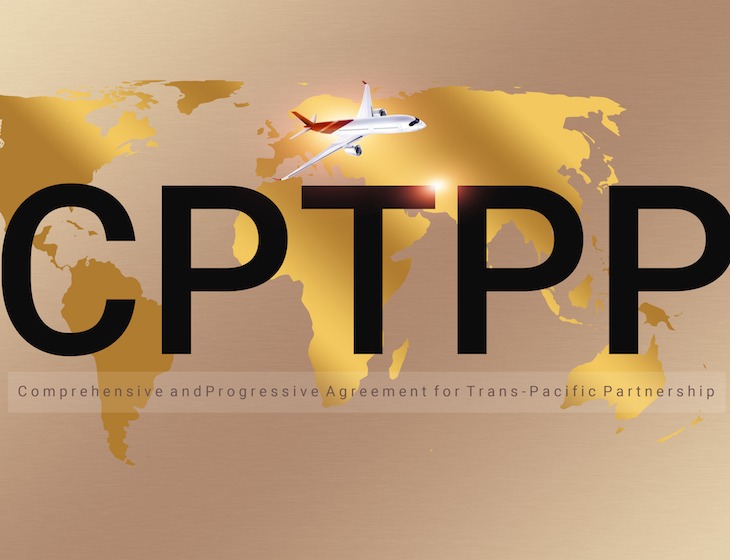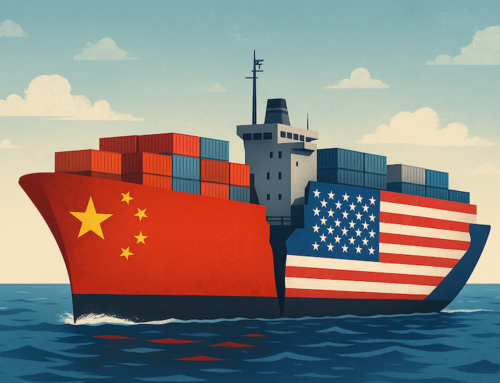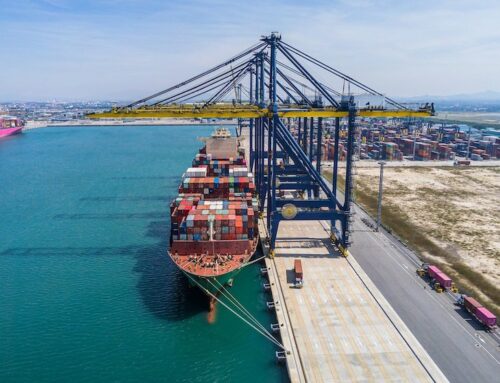You may have read in the news that the UK has signed a deal to join a trade pact, named CPTPP, with several countries in Asia and the Pacific, including Japan and Australia. But what is the CPTPP and what are the potential benefits for the UK?
What is the CPTPP?
The Comprehensive and Progressive Agreement for Trans-Pacific Partnership (CPTPP) is a trade agreement involving 11 nations: Australia, Brunei, Canada, Chile, Japan, Malaysia, Mexico, New Zealand, Peru, Singapore, and Vietnam.
These founding members collectively signed the Pacific trade pact in March 2018, and their combined economic output accounts for 13% of the world’s income.
Recently, the UK became the first non-founding country to join the CPTPP, becoming its second-largest economy within the agreement, only behind Japan. This addition elevates the total economic value of the CPTPP grouping to £11 trillion.
What’s in it for the UK?
The immediate benefits are minimal and the agreement is being cited as a mainly symbolic win for post-Brexit Britain. As part of its EU membership, the UK had pre-existing agreements with most of these nations, which have been carried over post-Brexit. Following Brexit, the UK has expanded its trade deals by adding Australia and New Zealand to its list.
In terms of numbers, the CPTPP accounted for only 8% of UK exports in 2019, which is less than the amount sold to Germany during the same period.
The only countries left without a UK deal were Brunei and Malaysia, together accounting for less than 0.5% of the UK’s total trade. The gains from this extended accord are projected to be relatively small – approximately 0.08% of GDP over a decade, according to the government’s best estimate.
However, the CPTPP is being likened to a start-up, implying that the estimates may not consider the rapidly growing importance of some members, like Vietnam, in the global trade landscape.
Potential benefits
The main benefit is improved market access with a pledge to reduce or eliminate 95% of import charges between member countries. Some charges are kept to protect sensitive domestic industries, like Japan’s rice farming.
Manufacturers sourcing components from various countries can claim preferential treatment if at least 70% of those components come from any CPTPP nation, allowing them to benefit from favourable “rules of origin”. For the UK, this could be advantageous for machinery and medicine producers, reducing costs and expanding supply chains across member states.
Investors from CPTPP countries receive equal treatment when funding projects in member states, supporting UK businesses.
Countries must collaborate on regulations, such as food standards, but unlike the EU, the CPTPP is not a single market or customs union, allowing countries to maintain their own standards.
Member countries can still negotiate individual trade deals with other nations, but joining the CPTPP is not consistent with rejoining the EU.
Potential challenges
Questions arise about how the UK will ensure environmental and animal welfare standards compliance in the CPTPP agreement, including concerns from a House of Lords committee.
Part of the agreement includes giving Canadian farmers more access to UK markets, but the ban on hormone-treated meat remains intact. And the UK conceded to reduce tariffs on Malaysian palm oil imports, despite concerns about deforestation, with current charges reaching up to 12%.
Trade unions worry about potential multinational company influence through increased investment, but trade experts argue that similar capacities exist in other trade deals, without any successful exercise against the government.
What happens next?
Members will carefully examine and ratify the treaty before it takes effect, a process that may take at least a year.
The most significant benefits – and challenges – may arise if other countries decide to join the agreement. China and Taiwan are among those interested in becoming members. Could the UK utilise its membership to influence China’s access and aspirations?
The ultimate achievement would be if the US changes course and decides to join the agreement, reversing the decision made by President Trump not to sign up. The United States purchases approximately twice the value of UK exports compared to all the current CPTPP nations combined, but it seems that joining the CPTPP is not currently a priority on President Biden’s agenda, for the time being at least.








